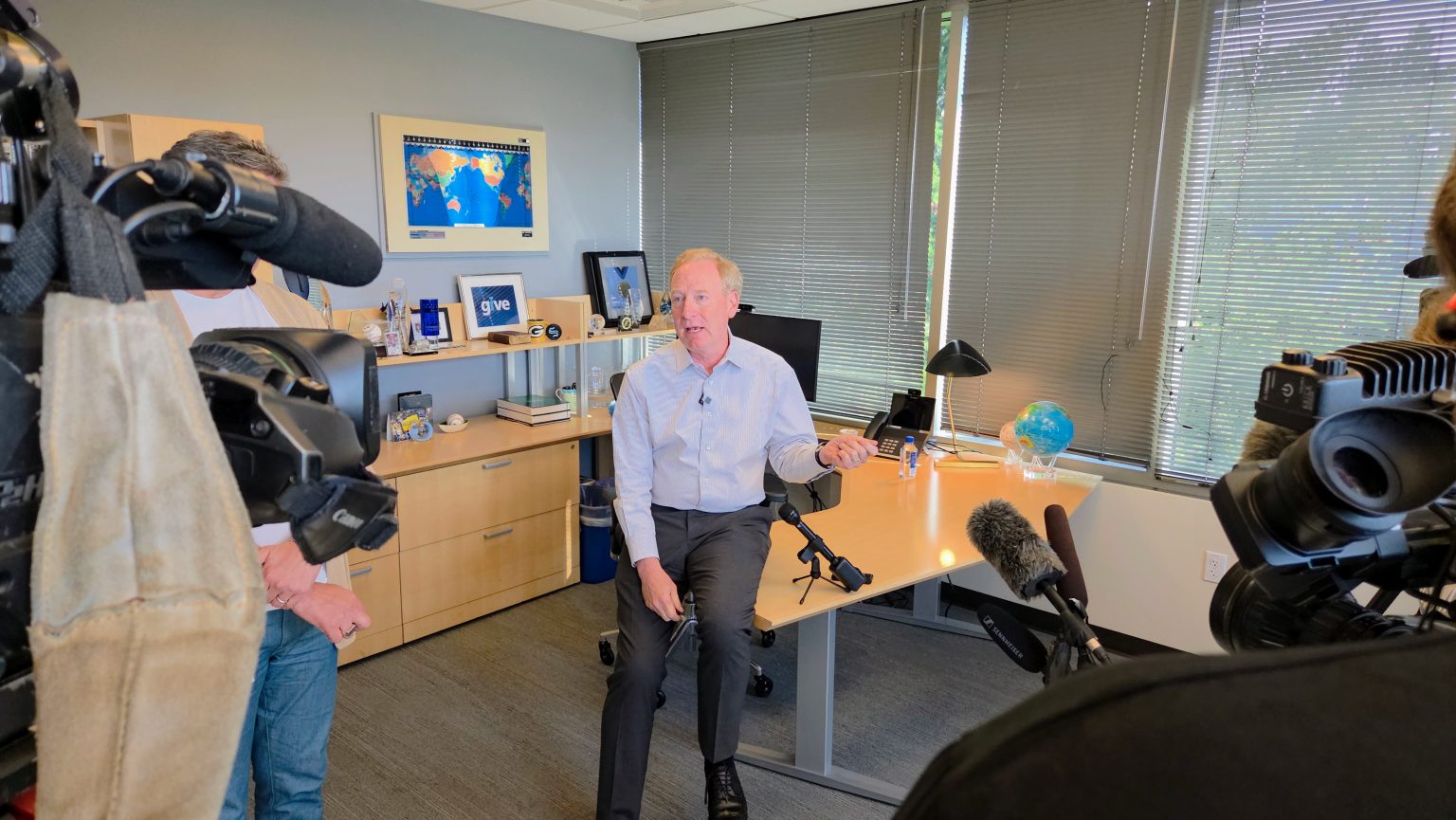Microsoft President Addresses Protest Aftermath in Rare Press Conference
In a hastily arranged press conference at Microsoft’s Redmond headquarters, company president Brad Smith addressed reporters just hours after protesters occupied his office. The dramatic confrontation marked an escalation in ongoing protests against Microsoft’s technology contracts with Israel. Smith, speaking from beside his desk where protesters had been earlier that day, provided details about the occupation and articulated Microsoft’s stance on its business relationships in the Middle East during this time of conflict.
The occupation represented an unprecedented security breach at the tech giant’s campus. Seven protesters from the group “No Azure for Apartheid” had infiltrated Smith’s office, with two identified as current Microsoft employees and one as a former Google employee. Smith described how the protesters blocked access to his office and concealed cell phones under furniture as makeshift listening devices. When they refused requests to leave, Redmond police physically removed and arrested them on charges including trespassing and obstruction. This incident followed demonstrations the previous week when twenty protesters were arrested after occupying a plaza on Microsoft’s East Campus and refusing to disperse. Smith expressed frustration with these tactics, stating they were “not necessary in order to get us to pay attention” and that such actions “distract from the real dialogue” happening within the company between employee groups of various backgrounds and perspectives.
Smith took the opportunity to address Microsoft’s human rights commitments and recent media reports about the company’s work in Israel. He confirmed that Microsoft is actively investigating allegations published in The Guardian about potential misuse of its Azure cloud platform by the Israeli military for surveillance of Palestinians in Gaza. Smith gave the newspaper credit for “fair reporting” while noting that after being contacted for the story, Microsoft determined some information was false, some true, and much still requiring verification. He also acknowledged a Bloomberg report that Microsoft had contacted the FBI regarding the protests, explaining that a security staff member had emailed the local FBI office in April simply to inquire if the agency had information about planned protests in the Seattle area. The transparency seemed aimed at addressing criticism while maintaining the company’s position that it operates ethically.
Regarding Microsoft’s work with the Israeli military, Smith provided context that might not be apparent to critics. He explained that the “vast majority” of Microsoft’s services for the Israeli Defense Force involve “protecting the cybersecurity of the State of Israel,” often in coordination with other regional partners like the United Arab Emirates to counter cyber threats from Iran and Russia. When questioned about potential disciplinary action against the Microsoft employees who participated in the office occupation, Smith was measured in his response, saying “we’ll take a look” while noting that repeat arrests represented behavior that is “not standard employee conduct.” He drew a clear distinction between the office occupation and legitimate forms of protest, stating, “People can go protest in public spaces, whether it’s at the Redmond Transit Center or in a kayak on a public lake outside my house” – referencing recent demonstrations where protesters in kayaks gathered on Lake Washington displaying banners in front of the waterside homes of Smith and CEO Satya Nadella with accusations of “Microsoft Kills Kids” and “Satya + Brad = War Criminals.”
The security breach itself raised significant questions about Microsoft’s protective measures. While Smith avoided sharing specific details about how protesters accessed a secure area, he revealed that an employee had reported being contacted by someone from the protest group the previous day seeking floor plans. The timing of when this information reached security officials wasn’t clear, but Smith assured that the company would “adapt our security accordingly.” The incident represents a remarkable security failure at one of the world’s largest technology companies, particularly concerning given the sensitive nature of Microsoft’s work and the high-profile status of its executives. The breach could potentially prompt a comprehensive review of security protocols across Microsoft’s campus.
Smith concluded the press conference with an acknowledgment of the immense human suffering on all sides of the Middle East conflict. He emphasized that Microsoft employees care deeply about both the 1,139 people killed in the October 7, 2023 Hamas attack and the 251 hostages taken, as well as the estimated 61,000 Palestinian civilians who have died in Gaza since then, including 17,000 children, along with hundreds of thousands facing severe risk of famine. His closing statement attempted to frame Microsoft’s role in the broader geopolitical context: “We cannot do everything that we might wish to change the world, but we know our role. We’re here to provide technology in a principled and ethical way.” This careful balancing act reflected the difficult position Microsoft finds itself in – maintaining business relationships with government clients while facing intense scrutiny from employees and activists about the humanitarian implications of those partnerships during times of violent conflict.


